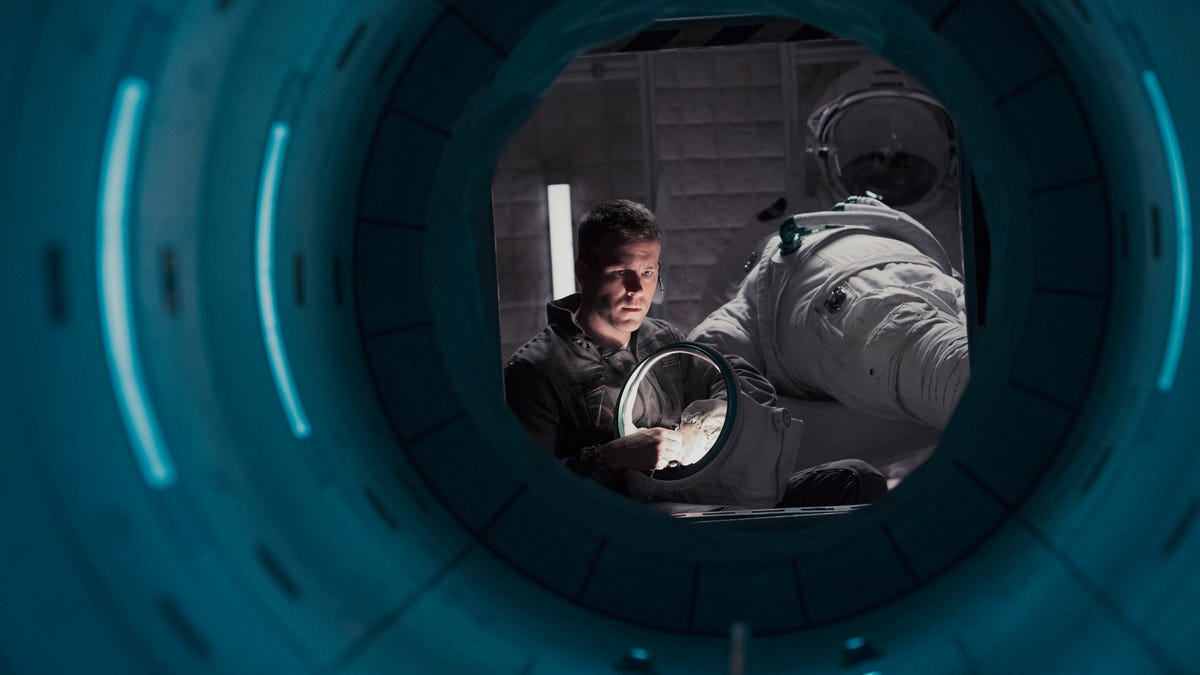'Life' science guy on looking to slime for alien inspiration
Genetics expert Adam Rutherford discusses the science of "Life" and "Ex Machina", and why alien life could be the most significant discovery in human history.

If you're stuck on a space station with a new form of life that wants to end yours, that's very bad news. But what will alien life look like? We asked Adam Rutherford, the man who helped conceive the villainous extra-terrestrial in the new movie "Life".
"Life", in theatres this weekend, stars Jake Gyllenhaal, Ryan Reynolds and Rebecca Ferguson as astronauts aboard the International Space Station who find their lives threatened by an alien particle. The directors wanted to "pass the Neil DeGrasse Tyson test" of authentic science, so they recruited Rutherford, a genetics expert and author, to lend credibility to the actors' performances and ground the alien in real science.
"There are two ways aliens can be shown in films that work really well", Rutherford says. "You can make aliens human -- or appear to be human -- like David Bowie in 'The Man Who Fell To Earth'. Or you can make them incomprehensible, like in '2001: A Space Odyssey'."
In real life, Rutherford points out, alien life is likely to be more simple. In fact, if it exists at all, it's likely in the form of single-celled organisms.
"Bacteria is the dominant form of life on Earth", Rutherford says. "It has been for millions of years and will outlast us. There are as many bacteria on you as there are human cells."
The alien life form in "Life" takes its Earthly inspiration from, of all things, slime mold. The creature may only begin as a single-celled organism, but it certainly gives Jake, Ryan, Rebecca et al a run for their money. And while we probably won't meet extra-terrestrials capable of phoning home in real life, even single-celled alien life could change the world.
"Finding alien life would be the most significant scientific discovery ever," Rutherford says. Everything that's ever lived on Earth -- "from humans to the blue whale to the T-Rex" -- has evolved from the same evolutionary tree. The discovery of life that evolved in a different way could teach us more than we could imagine.
The benefits could be real and tangible, similar to how bacteria here on Earth gave us antibiotics. Or the discovery could help us understand how our world works, similar to how we learned about climate change from observing the greenhouse effect on Venus.
Some of that life could be found on the recently discovered exoplanets of the Trappist system, where there are multiple planets that could support life as we understand it. Discoveries like that, as well as data collected from probes like Cassini and Juno, contribute to what Rutherford calls a "golden age" of scientific discovery. "But that's no reason to be complacent," he says. "Science does require funding ... all the evidence suggests if you stop scientific research then society collapses."
That doesn't mean Rutherford is keen to head into space, even as commercial space travel becomes a reality.
"If you'd asked me when I was 21 I'd have gone in a heartbeat, but now I'm 42 I have more earthly concerns -- I have to get my daughter to a ballet lesson at 6 p.m.," he jokes.
Even if we don't head into space, Rutherford stresses there are lots of creatures still to be discovered right here on our planet. And if that wasn't enough, we're building our own alien life in the form of advanced artificial intelligence. AI's a subject covered by "Ex Machina", another film to which Rutherford lent his scientific knowledge. Although AI is created by humans, it won't necessarily evolve a character like ours, he says.
Of course, AI has its own limitations. "The joke when we were making 'Ex Machina' was that AI wouldn't take over the world," he says. "It would run out of batteries."
Tech Culture: From film and television to social media and games, here's your place for the lighter side of tech.
Batteries Not Included: The CNET team shares experiences that remind us why tech stuff is cool.

